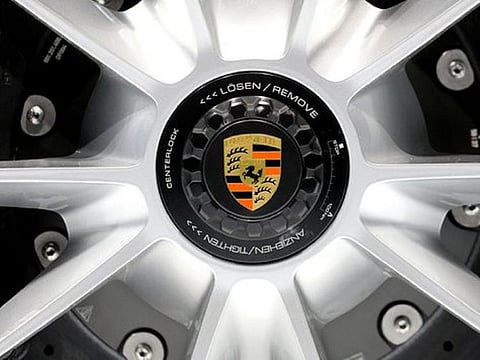German sportscar brand Porsche plans to bring out new all-electric SUV, priced higher than Cayenne
All-electric SUV will take its place above Cayenne in Porsche's SUV pecking order

Dubai: The German sportscar maker Porsche is bringing out a new all-electric SUV model, which will be placed higher than its bestselling Cayenne. The proposed launch has Porsche revisiting a strategy that has proved extremely successful over the last 20 years through the Cayenne.
“We are underlining and strengthening our sporty luxury positioning,” said Oliver Blume, CEO, while announcing a strong set of 2022 financials, also its first after the $72 billion IPO in September last year. “We are observing growing profit pools in this segment, in particular in China and the US.”
The model will launch at a time when carmakers are putting their resources and energy into turning out all-electric models, more in at the luxury, high-performance space. Porsche has legacy and form in this space, using the Cayenne to define the category when it launched 20 years ago.
That the new model is all-electric is part of the new narrative. Of Porsche's overall sales, the ambition is to generate 50 per cent from electric models (including hybrid) in 2025 and then steer it to all-electrics sales of 80 per cent mark by 2030.
Ratcheting up on SUVs - and electric
The all-electric Macan will be available to customers in 2024, and followed by a similar status for the Cayenne. "The fourth generation of the SUV will underline Porsche’s goal of delivering more than 80 per cent of its new vehicles as all-electric models in 2030," the carmaker said.
In the near term, Porsche has got its 'Road to 20' to reckon with. Launched this year, the program will have Porsche aiming for a group-wide operating return on sales of more than 20 per cent in the long term. “We are making Porsche even more resilient and our brand stronger than ever,” says Lutz Meschke, CFO.
“And we’re going to take a fresh look at everything, from our product range and pricing to our cost structure. We want to increase the quality of our contribution margins and make our products even more attractive.” (The Road to 20 is a continuation of the Profitability Programme 2025', with which the carmaker 'made itself more resistant to crises in previous years'.
Sign up for the Daily Briefing
Get the latest news and updates straight to your inbox


